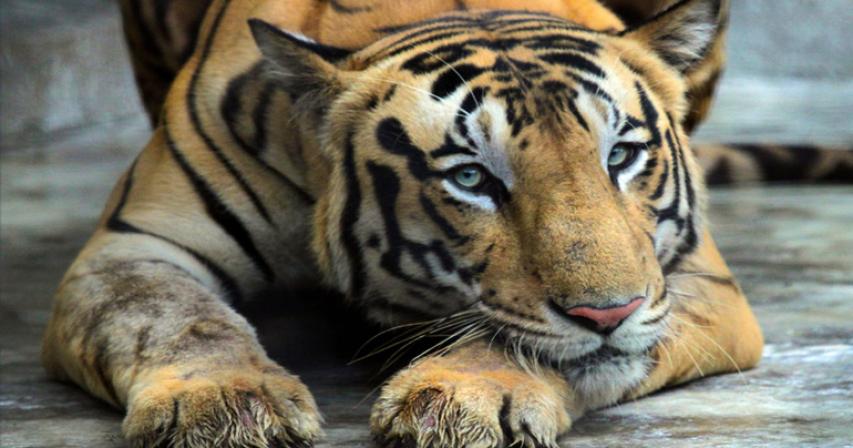As the world’s leading conservation organization, WWF works in nearly 100 countries collaborating with people around the globe to develop and deliver innovative solutions that protect communities, wildlife, and the places in which they live and survive.
For nearly 60 years, World Wildlife Fund (WWF) has worked to help people and nature thrive.
As the world’s leading conservation organization, WWF works in nearly 100 countries. At every level, they collaborate with people around the world to develop and deliver innovative solutions that protect communities, wildlife, and the places in which they live.
WWF works to help local communities conserve the natural resources they depend upon; transform markets and policies toward sustainability; and protect and restore species and their habitats. Their efforts ensure that the value of nature is reflected in decision-making from a local to a global scale.
WWF connects cutting-edge conservation science with the collective power of our partners in the field, more than one million supporters in the United States and five million globally, as well as partnerships with communities, companies, and governments.
Today, human activities put more pressure on nature than ever before, but it’s also people who have the power to change this trajectory. Together, the world can address the greatest threats to life on this planet and protect the natural resources that sustain and inspire us.
WWF’s work is focused around six ambitious goals: Climate, Food, Forests, Freshwater, Oceans and Wildlife.
Wildlife conservation is the preservation and protection of animals, plants, and their habitats. By conserving wildlife, WWF is ensuring that future generations can enjoy our natural world and the incredible species that live within it.
The world’s best loved species are being slaughtered by widespread and dangerous criminal networks. Driven by a voracious demand for illegal animal parts and products, the black market in wildlife rivals illegal arms and drugs. Increasingly, wildlife traffickers are the same kingpins involved in trafficking people and arms and narcotics.
Wildlife crime is a serious crime, not a distant problem in a faraway country
It is a global challenge that spans continents and crosses oceans. It matters, and not just because we care about elephants, rhinos and tigers. Park rangers on the frontlines of conservation are being killed. Local communities that depend on wildlife for tourism or sustenance are being robbed of their livelihoods. Corruption and intimidation are weakening law enforcement efforts.
Unscreened wildlife and wildlife parts increase the risk of human health pandemics such as bird flu. And regional security is compromised as militarized groups cash in on this lucrative and rapidly growing trade, using it to finance insurrection and even terrorist activity.
Science, commitment, passion and hope are all essential to protect the future of nature. No strategy will succeed without the relentless commitment of extraordinary people.
The strengths of WWF's amazing, dedicated and passionate people have created some of the planet's greatest conservation victories. WWF will achieve their ambitious goals through the efforts of WWF's incredible team of scientists, biologists and policy makers.
WWF joined the call to action to raise awareness and engage conservationists like you on Wildlife Conservation Day, December 4.
Despite increased efforts to tackle the surge in poaching, nearly 110,000 elephants have been killed in the last 10 years—highlighting the need for urgent international action to address the crisis.
African and Asian countries are reeling under a poaching crisis. Ruthless criminal networks are plundering the wild to supply skyrocketing demand for rhino horn, illegal ivory and tiger parts. As a WWF supporter, you know that wildlife crime is the most immediate threat to wild elephants, tigers and rhinos. And you share our concern about its connection to regional conflicts, national security and even terrorism.
WWF is urging governments—particularly those of demand countries such as China, Vietnam, Thailand and the U.S.—to strengthen law enforcement, invest in more boots on the ground and commit to long-term demand reduction efforts. But we also need your support to stop demand for illegal wildlife parts and products.
Pledge to stop wildlife crime and commit to preserving nature's beauty for future generations by logging in to https://support.worldwildlife.org

Comments